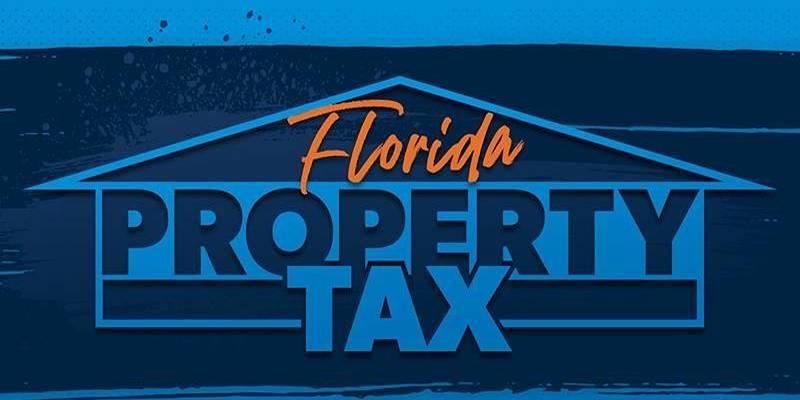People know that Florida has low taxes, especially for retirees and homeowners, who can get a lot of tax breaks. Florida does not have a personal income tax like many other states do. It is a big plus for people who want to keep more of their earnings.
However, while there is no income tax, Floridians still face other types of taxes, such as property taxes, sales taxes, and corporate taxes. This post will break down the tax situation in Florida for 2025, explaining who needs to pay taxes, what types of taxes are involved, and what exemptions are available.
Corporate Taxes in Florida
While Florida does not tax personal income, it does tax corporate income. Corporations that do business in the state are subject to a 5.5 percent corporate income tax rate on their profits. Businesses may also be eligible for certain deductions, such as a $50,000 exemption, which reduces the taxable income for qualifying corporations.
Business owners in Florida need to be aware of this tax, as corporate profits generated within the state are subject to this levy, even if the business operates in multiple states. A formula based on sales, payroll, and property within the state is used to determine the portion of income subject to the tax.
Florida’s Income Tax Situation: The No-Income-Tax Advantage
One of the most attractive features of Florida’s tax structure is its lack of a personal income tax. Whether you earn a salary, receive investment income, or draw from pensions and Social Security, the state does not tax individual earnings. This tax policy is especially advantageous for retirees, as pensions, Social Security benefits, and retirement account withdrawals are all free from state taxes.
For those planning to retire in Florida or move there for work, it’s essential to know that the state’s policy of not taxing personal income offers a significant tax advantage. It makes Florida one of the few states that allows residents to keep their earnings without worrying about income tax deductions at the state level.
Property Taxes in Florida: Rates and Exemptions

While there is no state property tax in Florida, local governments rely heavily on property taxes to fund their operations. Property taxes in Florida are based on the assessed value of real estate, and the rates can vary significantly depending on the county.
As of 2023, the average property tax rate across Florida is 0.79 percent of the assessed value of a property. However, this rate can fluctuate depending on the county. Florida’s property taxes are relatively low compared to other states, but some exemptions can reduce the burden for qualifying residents.
Homestead Exemption: Florida offers a Homestead Exemption for homeowners who make the property their permanent residence. This exemption can reduce the taxable value of a home by up to $50,000, lowering the amount of property tax that needs to be paid. In addition, once a homeowner qualifies for the exemption, the value of their property can increase by no more than 3 percent each year due to the "Save Our Homes" program, which protects residents from significant tax hikes.
There are further discounts for seniors, veterans, and individuals with disabilities. For example, residents aged 65 or older may qualify for an additional property tax break, and disabled veterans may receive a special exemption.
Sales Tax in Florida: Rates and Exemptions
Florida imposes a statewide sales tax rate of 6 percent on most goods and services. However, local governments can add a discretionary surtax, which means the total sales tax rate can be as high as 7.5 percent in some areas. For instance, in Miami-Dade County, the sales tax is 7 percent, while in other areas, it may be as low as 6.5 percent.
There are several important exemptions to Florida’s sales tax. Essential items such as groceries and prescription medications are not taxed. Additionally, items like certain medical equipment, baby products, and items for use in religious services are exempt from sales tax. Florida also has periodic “sales tax holidays,” during which specific items, such as hurricane preparedness supplies, are exempt from the sales tax.
For those purchasing high-ticket items like vehicles, boats, or mobile homes, the sales tax may apply only to the first $5,000 of the purchase price, with local surtaxes applying to additional amounts.
No Estate or Inheritance Taxes
Another attractive feature of Florida’s tax system is the absence of both estate and inheritance taxes. It means that when an individual passes away, their estate is not subject to state tax, which can be a significant benefit, particularly for high-net-worth individuals. Heirs also do not have to worry about paying taxes on inherited assets.
This lack of estate and inheritance taxes makes Florida a popular destination for retirees looking to protect their wealth and pass it on to their heirs without additional financial burdens.
Gas and Fuel Taxes
Florida also levies taxes on gas and diesel fuel. As of January 1, 2025, the state’s combined tax rate on gasoline is $0.37325 per gallon, while the tax on diesel fuel is slightly higher at $0.382 per gallon. These rates are adjusted annually, and local governments may also impose additional taxes on fuel.
Tax Benefits for Senior Residents

Florida is known for being especially friendly to older residents in terms of taxes. In addition to the Homestead Exemption, senior citizens can access further property tax discounts, including a special $50,000 exemption for those 65 or older with qualifying income. Veterans and active-duty military service members are also eligible for tax breaks, and in some counties, there are additional exemptions for widows, widowers, and disabled individuals.
Conclusion
Florida’s tax system offers several advantages, particularly for retirees and individuals looking to escape state income taxes. With no personal income tax, no estate or inheritance taxes, and a variety of exemptions for homeowners and seniors, Florida is an attractive option for many. However, residents should remain aware of property taxes, sales taxes, and the corporate tax structure to fully understand their tax obligations.












